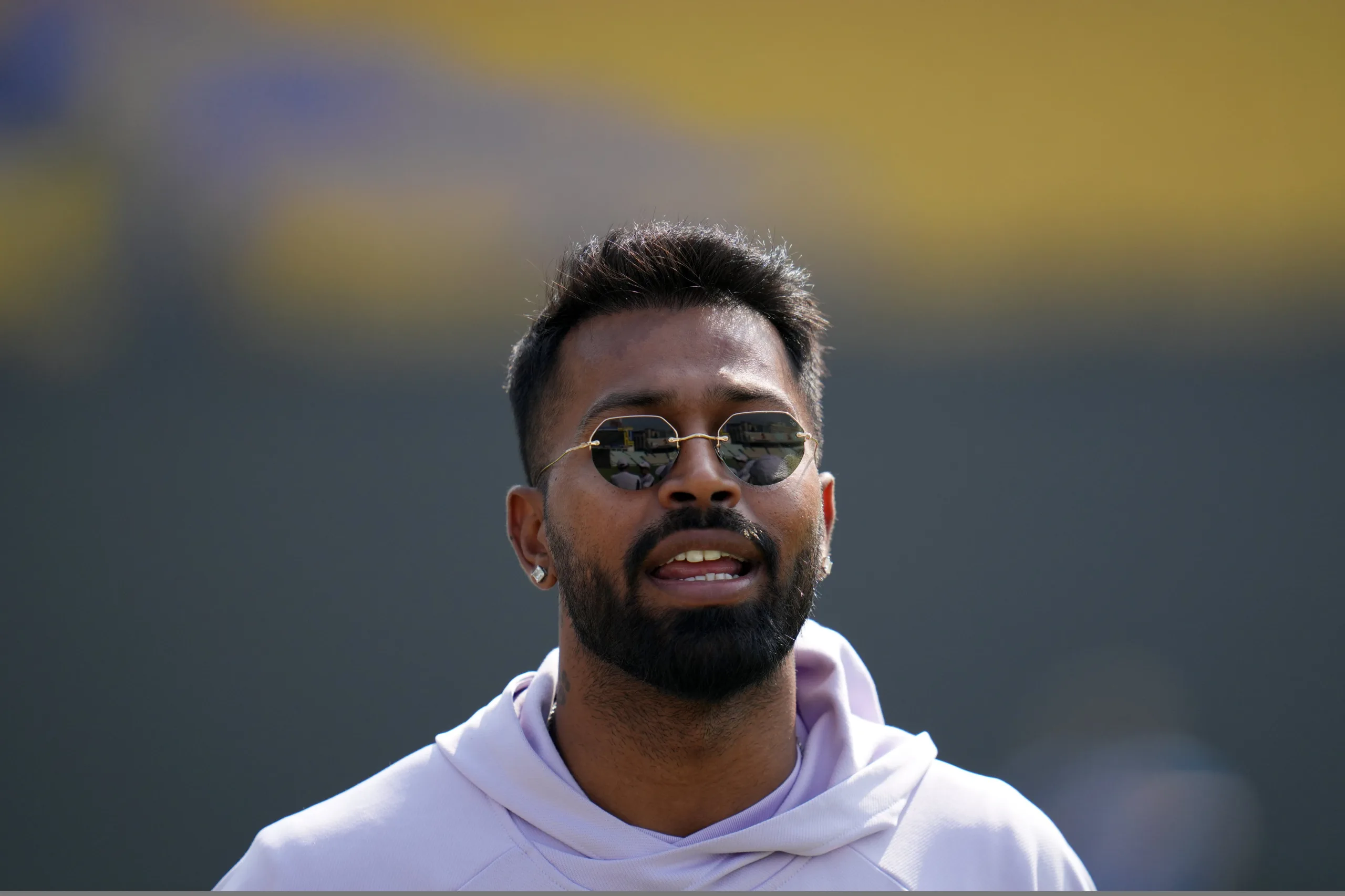As the ICC Champions Trophy 2025 approaches, New Zealand enter the tournament looking to redeem themselves after a disappointing 2024 T20 World Cup campaign in the Caribbean.

However, their strong track record in ODI cricket, especially in Pakistan, gives them a solid foundation to challenge the top teams. Having played 11 ODIs in Pakistan since 2019—more than any other visiting team—the Black Caps are familiar with the conditions, which could prove to be a crucial advantage.
Table of Contents
Recent Form: Strength in Batting, Bowling Uncertainty
New Zealand’s recent ODI performances have been a mixed bag. Since their semi-final finish in the 2023 ODI World Cup, they have won two of the three bilateral series they have played. Despite missing several key players in those series, they managed to hold their own, showcasing their squad depth. Their most notable achievement came in Pakistan, where a near full-strength New Zealand side dominated the hosts in the final of a tri-series in Karachi. With the Champions Trophy opener set to take place at the same venue, the Black Caps will be confident of repeating that performance.

Batting has been their major strength, especially in the middle overs. Since the 2023 ODI World Cup, New Zealand boast the highest run-rate among all teams between overs 10 and 40, scoring at 6.26 runs per over. Their top and middle order—led by Kane Williamson, Rachin Ravindra, and Daryl Mitchell—have been effective in handling spin, a crucial skill in subcontinental conditions.
However, bowling remains a concern. Their pace attack is significantly weakened due to injuries to key fast bowlers Lockie Ferguson and Ben Sears. Will O’Rourke, a promising young pacer, has been called up, but his lack of experience at the international level could be a vulnerability. With Matt Henry shouldering much of the workload, New Zealand’s bowling depth will be tested against quality opposition.
Strengths: Batting Firepower and Spin Depth
New Zealand’s batting unit is one of the most well-balanced in the competition. Their top order features Devon Conway and Rachin Ravindra, both of whom have shown the ability to counter spin early on. Kane Williamson, their most experienced batter, provides stability at No. 3, while Tom Latham, Daryl Mitchell, and Glenn Phillips add firepower to the middle order. The presence of all-rounders like Michael Bracewell and Mitchell Santner ensures that their batting depth extends down to No. 8.

In the spin department, New Zealand may lack a specialist wrist-spinner, but their combination of finger spinners—Santner, Bracewell, and Phillips—offers versatility. Both Santner and Bracewell can operate in the powerplay, while Phillips provides an additional spin option in the middle overs. This depth in spin bowling will be crucial on the slower pitches in Pakistan.
Weaknesses: Fragile Pace Attack and Lack of Tournament Experience
While their spin attack is well-rounded, their seam bowling is a major concern. With Ferguson and Sears unavailable, New Zealand’s pace attack lacks a genuine express bowler who can trouble batters with raw speed. Matt Henry will be expected to lead the attack, but the rest of the fast-bowling unit—Jacob Duffy, Will O’Rourke, and possibly Kyle Jamieson—does not have extensive experience in ICC tournaments. This lack of depth could prove costly, especially against strong batting sides like India and Pakistan.

Another potential weakness is the relative inexperience of some squad members in high-pressure tournament cricket. While veterans like Williamson and Santner provide leadership, younger players like O’Rourke, Bracewell, and Ravindra will need to step up in crucial moments. Their ability to handle pressure in knockout-style matches remains uncertain.
Group Stage Fixtures
New Zealand face a tough group stage schedule in the Champions Trophy:
- Feb 19 – vs Pakistan (Karachi)
- Feb 24 – vs Bangladesh (Rawalpindi)
- Mar 2 – vs India (Dubai)

Their opener against hosts Pakistan will be a key test, given their recent success in Karachi. The clash against Bangladesh in Rawalpindi will be another tricky fixture, as Bangladesh have proven to be a formidable ODI side in Asian conditions. Finally, the group stage concludes with a blockbuster encounter against India in Dubai, a team New Zealand have troubled in past ICC tournaments.
New Zealand’s Best XI
Based on current form and squad balance, New Zealand’s likely playing XI could be:
- Devon Conway
- Rachin Ravindra
- Kane Williamson
- Tom Latham (wk)
- Daryl Mitchell
- Glenn Phillips
- Michael Bracewell
- Mitchell Santner (capt)
- Matt Henry
- Jacob Duffy
- Will O’Rourke
Reserves: Will Young, Mark Chapman, Nathan Smith, Kyle Jamieson
Players to Watch: Daryl Mitchell and Mitchell Santner
Among New Zealand’s standout players, Daryl Mitchell embodies the Kiwi fighting spirit. Since his breakout performance in the 2021 T20 World Cup, he has become a key figure in their middle order. His ability to dominate spin, particularly with sweep and reverse-sweep shots, makes him a dangerous batter in subcontinental conditions. He has also built a reputation for delivering in crunch moments, as seen in his performances during the 2021 and 2023 World Cups.

Another key player is Mitchell Santner, who not only leads the side but also provides crucial balance with both bat and ball. Since the 2023 ODI World Cup, Santner has taken 26 wickets in 18 innings at an economy rate of 4.57—an impressive return in modern-day ODI cricket. His control in the middle overs and leadership experience will be essential if New Zealand are to make a deep run in the tournament.
Champions Trophy History: Seeking Another Title
New Zealand’s only major ICC trophy triumph came in the 2000 Champions Trophy (then known as the ICC KnockOut). Since then, they have reached the final only once, in 2009, where they lost to Australia.

Despite consistent performances in ICC tournaments over the years, the Black Caps have often fallen short in the final stages. With a mix of experience and emerging talent, they will be eager to add another title to their cabinet in 2025.
A Team with Potential, but Concerns Remain
New Zealand enter the 2025 Champions Trophy with a strong batting lineup and an effective spin attack, both of which suit the conditions in Pakistan. However, their pace attack remains a significant concern, and their ability to handle pressure in knockout games is yet to be tested.

If their top-order fires and their bowling attack holds its own, they have the potential to reach the latter stages of the tournament. Yet, with challenging group-stage matches ahead, their path to the semi-finals will not be easy.
FAQs
What are New Zealand’s biggest strengths for the Champions Trophy 2025?
New Zealand’s key strengths include a well-balanced batting lineup with strong middle-order hitters and a versatile spin attack led by Mitchell Santner and Michael Bracewell.
What is New Zealand’s main weakness heading into the tournament?
Their biggest concern is the lack of depth in their pace attack due to injuries to key fast bowlers like Lockie Ferguson and Ben Sears, leaving Matt Henry as their primary strike bowler.
How has New Zealand performed in Pakistan in recent years?
New Zealand have played 11 ODIs in Pakistan since 2019, more than any other visiting team, and have found success, including a tri-series win in Karachi.
Who are the key players to watch for New Zealand in the Champions Trophy 2025?
Daryl Mitchell, known for his ability to dominate spin, and Mitchell Santner, an experienced all-rounder and captain, will be crucial to New Zealand’s chances.
What are New Zealand’s group-stage fixtures in the Champions Trophy 2025?
New Zealand will face Pakistan on February 19 (Karachi), Bangladesh on February 24 (Rawalpindi), and India on March 2 (Dubai).








